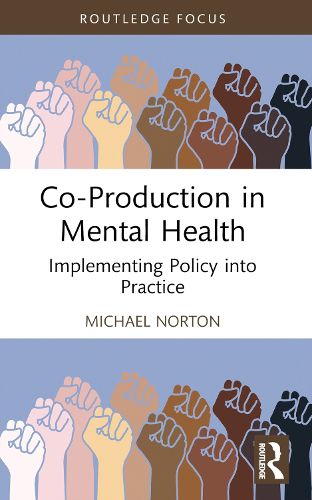Readings Newsletter
Become a Readings Member to make your shopping experience even easier.
Sign in or sign up for free!
You’re not far away from qualifying for FREE standard shipping within Australia
You’ve qualified for FREE standard shipping within Australia
The cart is loading…






This book examines the recovery principle of co-production within mental health services, defining it as the creation of a space where all stakeholders - including service users, family members, carers and supporters - come together in a partnership to improve all aspects of mental health services.
Exploring both the practicalities and complexities of co-production, the book provides detailed analyses of all aspects of the concept in relation to mental health and discusses the growing evidence-base for adopting co-production as a recovery approach within a mental health setting. The book's chapters outline: the foundational principles in implementing the concept in services; the theories of co-production in and outside of mental health settings; how to translate theory into practice; and examples of implementation. The book also explores the sustainability of co-production and the tensions that are present between the idea of recovery and mental health policy.
The volume represents an ideal introduction to the concept of co-production in mental health and will be valuable reading for those researching and working in the area of mental health services and recovery, including nurses, occupational therapists and social workers.
$9.00 standard shipping within Australia
FREE standard shipping within Australia for orders over $100.00
Express & International shipping calculated at checkout
This book examines the recovery principle of co-production within mental health services, defining it as the creation of a space where all stakeholders - including service users, family members, carers and supporters - come together in a partnership to improve all aspects of mental health services.
Exploring both the practicalities and complexities of co-production, the book provides detailed analyses of all aspects of the concept in relation to mental health and discusses the growing evidence-base for adopting co-production as a recovery approach within a mental health setting. The book's chapters outline: the foundational principles in implementing the concept in services; the theories of co-production in and outside of mental health settings; how to translate theory into practice; and examples of implementation. The book also explores the sustainability of co-production and the tensions that are present between the idea of recovery and mental health policy.
The volume represents an ideal introduction to the concept of co-production in mental health and will be valuable reading for those researching and working in the area of mental health services and recovery, including nurses, occupational therapists and social workers.